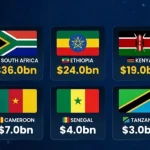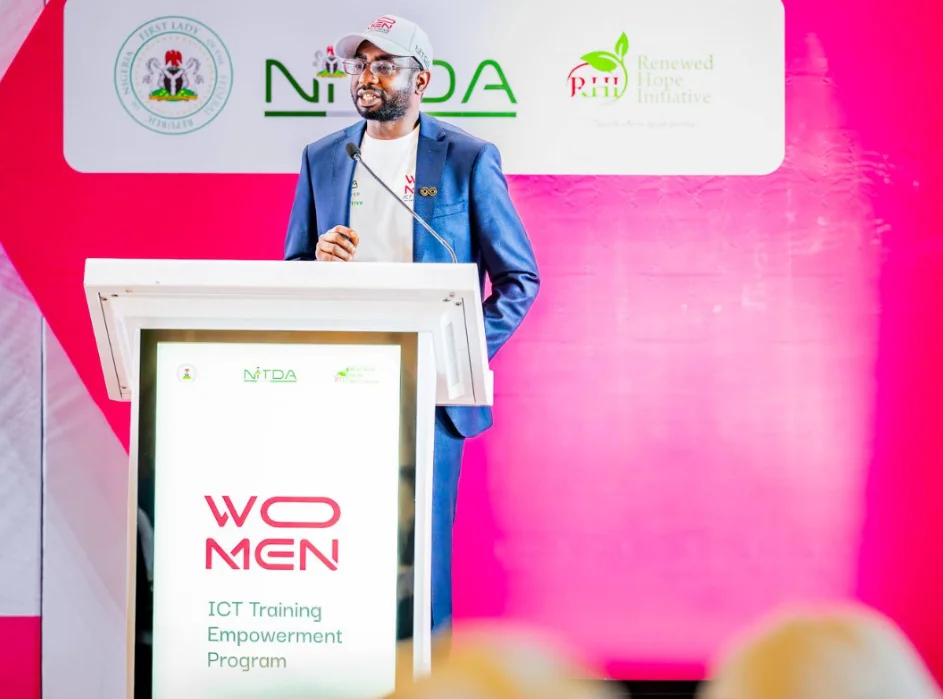Nigerian women are embracing entrepreneurship at an extraordinary rate, with eight in ten (83%) considering themselves as entrepreneurs—far higher than the regional average of 51% across Eastern Europe, the Middle East and Africa (EEMEA).
Among them, millennial women (86%) lead the way, outpacing their male counterparts (79%).
New research from Mastercard titled Empowerment for all; released ahead of International Women’s Day 2025, highlights the driving forces behind this wave of entrepreneurship: financial independence, personal ambition, and the ability to turn brilliant ideas into reality.
Among women business owners in Nigeria, 49% started their business to pursue a dream, while 45% wanted to bring a great idea to life—underscoring a strong sense of purpose among female entrepreneurs.
“The entrepreneurial spirit among women is strong and growing, with younger generations leading the way. With access to the right financial tools, mentorship, and digital resources, women entrepreneurs can unlock new business opportunities, drive innovation, and contribute significantly to economic development. At Mastercard, we are committed to navigating barriers and fostering an ecosystem where women-led businesses can thrive,” said Selin Bahadirli, executive vice president of services for Eastern Europe, Middle East and Africa at Mastercard.
Nigerian women are not only aspiring to start businesses but are also actively participating in side hustles, with 87% engaged in income-generating activities outside their main job, highlighting their strong entrepreneurial drive and determination to achieve financial security and independence.
High entrepreneurial spirit across generations
- Millennials (86%) are the most likely to consider themselves entrepreneurs, followed by Gen Z (81%) and Gen X (73%).
- 90% of Nigerian women want to start their own business and are highly motivated to build multiple income streams. Their top reasons for being:
- Earning more money (83%)
- Gaining financial independence (67%)
- Creating a financial safety net (52%)
- The outlook for business growth in Nigeria is overwhelmingly positive, with 93% of business owners (both genders) expecting revenue to increase over the next five years.
Top sectors for Nigerian women entrepreneurs
Nigerian women are pursuing business opportunities across diverse industries, with the most popular being:
- Agriculture (36%)
- Food and drink (22%)
- Education, including tutoring (20%)
Barriers facing women entrepreneurs
Despite this entrepreneurial drive, confidence is a major issue among Nigerian women, with 15%—more than twice the proportion of men (7%)—feeling they lack the confidence to start a business.
They also face significant barriers to starting and sustaining their businesses, citing lack of funding (57%), lack of financial resources (56%) and the difficulty in securing startup capital (40%) as the biggest challenges.
Folasade Femi-Lawal, Country Manager and Area Business Head for West Africa said:
Nigerian women entrepreneurs are redefining business success with their ambition, creativity, and resilience. With 83% of them considering entrepreneurship, the opportunity to drive inclusive economic growth is immense. However, key barriers such as access to finance, digital infrastructure, and business skills must be addressed to ensure that their potential is fully realized. By working with partners in Nigeria, we are committed to equipping female entrepreneurs with the tools, networks, and capital they need to thrive in an increasingly digital economy.”
Female entrepreneurs in Nigeria are nearly four times more likely than men to struggle with childcare responsibilities when starting a business (14% vs. 4%), while 16% feel that starting a business is simply not an option for someone like them and 35% saying they need to stay in a job to maintain financial stability, highlighting the need for greater support and inclusion.
Women also believe they lack the necessary knowledge to start a business (10%), compared to just 4% of men. Access to critical digital infrastructure is another key barrier affecting 35% of female entrepreneurs in Nigeria.
Support needed
To overcome these barriers, Nigerian women identified key enablers that would help them thrive, including:
- More available funding options (65%) to ease financial constraints
- Better training in business skills (55%) to build expertise
- Greater access to grants and public funding schemes (47%) to accelerate growth
Female business owners in Nigeria are also more likely than men to recognize the importance of guidance in choosing the right technology (37% women vs. 29% men) and sustainable practices (35% women vs. 25% men) for their business as key factors for long-term success.
Leveraging technology for business success
Female entrepreneurs in Nigeria are leading the adoption of AI, with 80% regularly using AI in their business—nearly twice the rate of men (45%). Additionally, 82% of female entrepreneurs report significant cost and time savings from AI adoption, compared to 63% of men.
However, women are also more vulnerable to cybersecurity threats, with:
- 51% of female business owners have been targeted by fraudsters, compared to 35% of men.
- 65% of them worry daily about cyberattacks, slightly higher than men (61%).
- More women (27%) than men (22%) have lost customers due to scams, underscoring the need for stronger cybersecurity education and protection.
Mastercard has a long-standing commitment to enabling women entrepreneurs through financial inclusion, digital solutions, and knowledge-sharing initiatives. Since 2020, Mastercard has provided over 50 million small businesses including 37 million female entrepreneurs with support and solutions that can help them grow their businesses.
In Nigeria, Mastercard has partnered with organizations like SMEDAN, LSETF, KaiOs, and Allawee to support entrepreneurs with capacity building, access to market, access to credit and relevant business digitization tools and services.
















